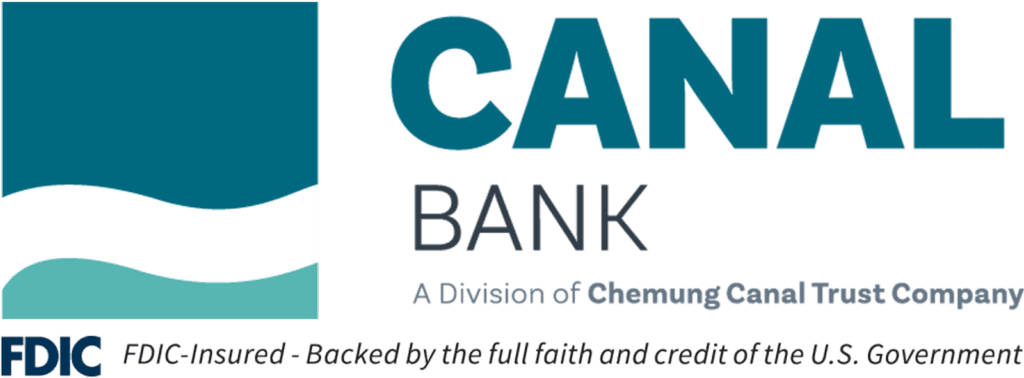Understanding the types of mortgage loans available is essential for making informed decisions as a homebuyer. Whether you’re a first-time purchaser or upgrading to your forever home, your choice of mortgage can significantly impact your long-term financial stability. From fixed-rate security to zero-down government-backed options, each loan product serves different financial goals and borrower profiles.
Fixed-Rate Mortgages: Predictability for the Long Haul
Fixed-rate mortgages are the most popular choice for homeowners—and with good reason. These loans offer consistent monthly payments, making them ideal for long-term budgeting and financial planning.
Advantages of Fixed-Rate Mortgages
- Locked-in interest rate for the life of the loan
- Monthly payments remain stable regardless of market conditions
- Ideal for buyers planning to stay in their home long-term
Potential Drawbacks
- Higher initial rates compared to adjustable-rate mortgages
- Less flexibility if market rates drop—refinancing is required to adjust
Best for: Buyers seeking predictability and long-term ownership.
Adjustable-Rate Mortgages (ARMs): Flexibility with Initial Savings
Adjustable-rate mortgages begin with a lower interest rate compared to fixed-rate loans. This makes them attractive for buyers who anticipate moving or refinancing before the rate adjusts.
Key Features of ARMs
- Introductory rate is typically lower than fixed-rate options
- Rate adjusts periodically based on market indexes
- Some ARMs include rate caps to limit how much your payment can increase
When to Consider an ARM
- You expect to relocate within 5–7 years
- You’re confident in future income growth
- You want to reduce your initial monthly payment
Best for: Short-term homeowners or those comfortable with rate fluctuations.
Construction Mortgages
Building your own home involves careful planning, and choosing the right financing can make the process smoother. A One Close Construction-to-Permanent Loan allows you to secure both your construction and permanent financing in a single closing. This can help reduce duplicate fees and minimize delays.
Both fixed-rate and adjustable-rate options are available, allowing you to select the structure that best fits your budget and long-term goals. If you already own the land or have completed site improvements, the equity can often be applied toward your down payment, freeing up cash for other expenses.
Construction must be completed by an approved contractor to help ensure quality and compliance with building standards. During the construction phase, monthly payments typically cover only the interest on funds disbursed, keeping costs more manageable while the project is underway.
Some programs also include a one-time rate modification option, providing flexibility if interest rates change before construction is complete.
By understanding your financing options from the start, you can move from blueprints to move-in day with greater confidence and fewer financial surprises.
FHA Loans: A Gateway to Homeownership
FHA loans, backed by the Federal Housing Administration, are designed for borrowers with limited savings or moderate credit scores.
FHA Loan Benefits
- Down payments as low as 3.5%
- More lenient credit requirements
- Higher debt-to-income ratios accepted
FHA Eligibility Requirements
- Minimum credit score of 580 (for 3.5% down)
- Proof of steady employment and income
- Mortgage insurance premium (MIP) required
Best for: First-time homebuyers and borrowers with limited credit history.
VA Loans: Exclusive Benefits for Military Families
VA loans offer unmatched advantages for U.S. veterans, active-duty service members, and eligible military spouses.
VA Loan Highlights
- No down payment required
- No private mortgage insurance (PMI)
- Competitive interest rates
VA Eligibility Criteria
- Minimum service duration requirements
- Honorable discharge status
- Certificate of Eligibility (COE)
Best for: Eligible military personnel and veterans looking for cost-effective financing.
USDA Loans: Affordable Mortgages for Rural Buyers
USDA loans provide zero-down home financing for buyers in rural and suburban areas, backed by the U.S. Department of Agriculture.
Benefits of USDA Home Loans
- No down payment required
- Reduced mortgage insurance costs
- Competitive interest rates
USDA Loan Requirements
- Income must fall within area-specific limits
- Property must be located in an eligible rural zone
- Stable income and credit history needed
Best for: Low-to-moderate income buyers in qualifying rural areas.
Jumbo Loans: Financing for High-Value Properties
If you’re purchasing a luxury home or property that exceeds conforming loan limits, a jumbo loan may be necessary.
Jumbo Loan Advantages
- Higher loan amounts for upscale properties
- No conforming loan caps
- Competitive interest rates with strong credit
Jumbo Loan Qualifications
- Credit score of 700 or higher
- 10–20% down payment
- Significant income and asset documentation
Best for: High-income borrowers purchasing premium real estate.
Interest-Only Mortgages: Short-Term Flexibility
Interest-only mortgages allow you to pay only the interest on the loan for a set period, typically 5–10 years.
Why Consider an Interest-Only Loan
- Lower monthly payments initially
- Frees up cash for investments or business ventures
- Ideal for short-term ownership or income increases
Risks to Watch
- Principal repayment begins after interest-only period
- Potential for payment shock if income doesn’t increase
- Limited equity growth during interest-only phase
Best for: Financially disciplined borrowers with variable income or short-term ownership plans.
Reverse Mortgages: Converting Equity into Income
A reverse mortgage lets homeowners aged 62 or older convert their home equity into tax-free cash flow, without selling the property.
Key Benefits
- No monthly mortgage payments required
- Flexible disbursement options (lump sum, monthly, or credit line)
- Enhances retirement income
Important Considerations
- Loan is repaid when the homeowner moves, sells, or passes away
- Reduces the home’s equity over time
- May affect heirs and estate planning
Best for: Retirees seeking supplemental income without selling their home.
Conventional Loans: Versatile and Widely Accepted
Conventional mortgages are not backed by government agencies, making them a flexible and widely used loan option.
Pros of Conventional Mortgages
- Available as fixed or adjustable-rate loans
- No upfront mortgage insurance fee
- Private mortgage insurance (PMI) can be removed
Basic Requirements
- Credit score of 620 or higher
- Down payment of 3% to 20%
- Stable income and a debt-to-income ratio below 43%
Best for: Borrowers with strong credit and financial stability.
Bridge Loans: Funding the Gap Between Homes
Bridge loans offer short-term financing that lets you purchase a new home before selling your current one.
Bridge Loan Features
- Fast access to equity from your existing home
- Enables non-contingent offers on new homes
- Flexible repayment—typically repaid after sale of old home
Bridge Loan Eligibility
- Sufficient equity in current property
- Solid credit and income documentation
- Clear plan for selling your existing home
Best for: Homebuyers transitioning between properties and needing temporary funds.
Frequently Asked Questions About Mortgage Loans
What documents do I need for a mortgage application?
You’ll typically need tax returns, pay stubs, W-2s, bank statements, photo ID, and credit reports. Lenders may also request additional documentation based on your income type or property location.
How does my credit score affect loan eligibility?
A higher score opens the door to better interest rates and more favorable loan terms. Most lenders prefer a minimum score of 620 for conventional loans, but government-backed options may allow for lower scores.
Can I refinance later if I choose the wrong loan?
Yes, refinancing allows you to switch loan types or secure a lower rate—if market conditions and your financial profile permit it.
What are typical closing costs?
Closing costs range from 2% to 5% of the loan amount and include fees for appraisal, title, underwriting, and origination.
How long does mortgage approval take?
Mortgage approval typically takes 30 to 45 days, depending on documentation, underwriting, and appraisal processes.
CHOOSING THE RIGHT MORTGAGE TYPE FOR YOU
Your mortgage decision shouldn’t be a shot in the dark. With options ranging from fixed-rate stability to zero-down USDA and VA loans, your choice should align with your financial reality and future goals. If you’re buying a starter home, refinancing, or investing in a luxury property, there’s a mortgage loan tailored for your situation. Evaluate the pros, cons, and long-term impact of each option—and consult with a mortgage advisor to finalize the best choice for your homeownership journey.





